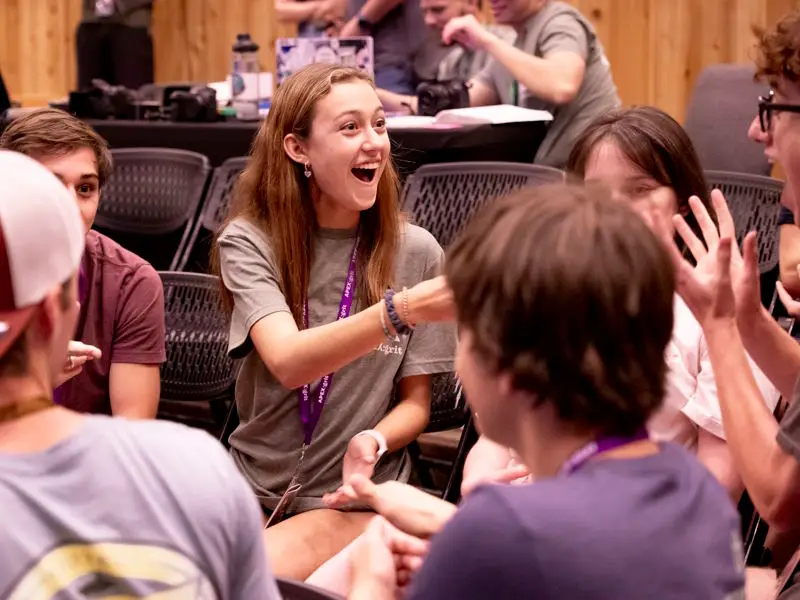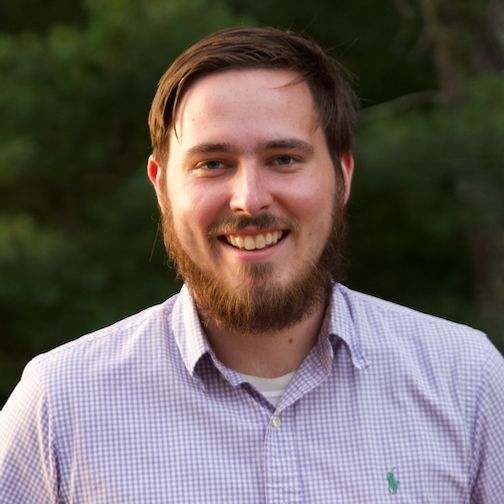How do Ascend teams communicate and create friendships?

During the chaos that swept higher education in 2020 with the onset of the COVID-19 pandemic, many colleges and universities sent their classes online. With this change came the rise of “Zoom University”, which we’ve addressed on this blog before. (Here and here.)
One consequence of the “Zoom University” phenomenon was a suspicion of distance learning and online classes. Were they really effective? Was doing college online really a good idea?
While the Ascend program by Unbound is not an online college, some have asked similar questions about our program’s community and communication formats. Can a program composed of students all across the country, living in their own local communities, actually be built on strong community? If so, how does it work?
The answer is a solid “yes!”. Despite the distance that lies between our students, the Ascend community is close-knit and collaborative. One of the many key ingredients is the Ascend Team. These teams are made up of 7-10 students from all over the country who support each other in their projects, meet regularly via video-call, communicate daily via Slack, and provide the core building block of the Unbound community.
Here are three ways that Ascend Teams communicate and build friendships:
1. Daily Communication
The reason that Zoom University was a flop wasn’t because it was online. It was because it was boring. (Not to mention, overpriced!) No college student wants to sit on their bed attending boring lectures via Zoom.
The future of education in your inbox.
Get productivity tips, commentary, and Unbound updates sent to you!
Online communication in Ascend is the opposite of boring. All students join a private Slack workspace dedicated to that year’s class. This is where announcements are made, projects are shared, and students can share memes and photos from their life with their classmates.
Additionally, each Ascend Team has its own private Slack channel where more fun, collaboration, and encouragement take place. The use of Slack is great for a number of reasons, not least of which is the widespread use of Slack in the professional world. While our students are interacting with each other, they are also learning how to use one of the foremost team communication tools in the business today.
Slack conversations between students range from the silly to the serious. Students bond over shared hobbies, interests, and favorites. They also engage in meaningful discussions of important topics.
2. Monthly Calls
Remember what I said about boring Zoom calls?
You won’t find those in Ascend.
Each month, Ascend Teams meet for about an hour to discuss progress on projects and keep each other on track and accountable for growth. These calls are led by the expertly-trained staff coaches called Ascend Team Leaders. Our ATLs are trained to coach and provide support for students. As they lead these calls they help students engage in peer-to-peer coaching and accountability on academics and projects.
These calls help build a foundation of connection that bonds the Ascend Team and allows time for “face-to-face” interaction, albeit through a video screen.
3. Events
At the end of the day though it’s not the online components that serve as the basic foundation for Ascend Teams and their community. We understand that “online community” can’t achieve truly transformational community impact in isolation from real face-to-face interactions.
That’s why the three student events per year included in the Ascend program are not add-ons. They are critical, essential pieces to the Ascend experience.
Starting with APEX, students meet each other for the first time. Before any Slack conversations or Zoom calls, students get to experience life together at a camp in Northern Michigan while they listen to engaging speakers, receive orientation for the program, work on hands-on projects together, and have a ton of fun!
In January, students meet again at Basecamp which is a practical life skills intensive. Often held on the sunny beaches of Alabama or Florida this event allows students to reconnect in person after months of building friendships over Slack and video calls.
Finally, Capstone draws the program to a close just a few weeks before summer break. This event is often the most rewarding and meaningful experience in the Ascend program. After building relationships for an entire school year, students have the chance to engage in real, face-to-face peer coaching with coaching and instruction from Dr. Jeff Myers of Summit Ministries.
Conclusion
Ascend Teams utilize the best of both worlds: both digital and in-person. Through regular communication on Slack and over video calls, they build friendships throughout the year. This is fed by and in turn feeds the live interaction they experience at student events. Many students collaborate on projects with each other and take trips to visit their friends in-between events. It’s true that far-flung communities can indeed develop despite the distance.
To learn more about Ascend, Unbound’s program for young adults entering the workforce with an appetite for more robust professional, financial, and relational preparation, schedule a free consultation today.



